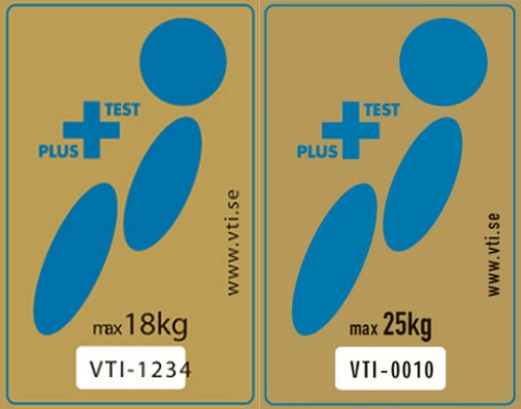WHY IS THE PLUS TEST SEAL SO IMPORTANT?


The inertia and stresses that the vertebrae and neck of a vehicle occupant experience during an impact pose a high risk of serious injuries to the cervical area, injuries that can be fatal.
In the case of children, there are two reasons why this fact is even more serious:
- Firstly, a child's head is larger relative to the body than an adult's, and therefore generates more inertia in the event of an impact. The child's neck in this case is forced to withstand more force on it, exponentially increasing the risk of cervical injury.
- Secondly, the bone and muscle structure of a child's neck is not 100% developed, aggravating the previous point.
There are two important government institutions in Sweden, namely the VTI (Swedish National Road and Transport Research Institute) and the NFT (National Society for Road Safety), which in collaboration with Volvo and the Swedish standardisation institute SIS (Swedish Standards Institute) developed a new test in 2009 using existing technology to measure these stresses very accurately.
This new test is called the "Plus Test."
The Plus Test subjects the chair to a series of tests and stresses other than those taken into account by the ECE-R44/04 and R129 regulations. The tests themselves are much more rigorous and therefore the most demanding currently in terms of SAFETY.
The Plus Test is voluntary among manufacturers, and it should be noted that, due to its requirements, no forward-facing car seat has yet passed it.
The factors that make the difference are:
- Firstly, this is a much more demanding crash test for the chair.
- Secondly, it accurately measures the cervical load, i.e. the force that the neck, shoulders and cervical vertebrae bear at the moment of impact.
In this test, all forward-facing car seats are at a clear disadvantage, because at the moment of impact, the cervical loads can exceed 280 kg, when the vital safety limit for a child up to 3 years old is 122 kg of load.







